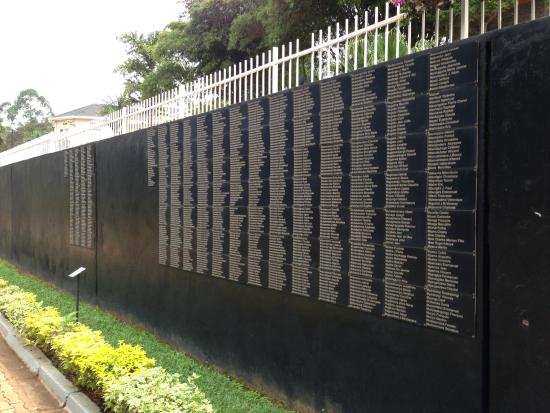
We publish here an extract from an address by Noam Schimmel on the Commemoration of the 25th Anniversary of the Rwandan Genocide Against the Tutsi, Kalamazoo, Michigan, June 8, 2019
History can have about it a feeling of inevitability. It happens and quickly becomes normalized and it is hard to imagine it unfolding differently from how we know it to have taken place, however horrifically, immorally, tragically, and cruelly.
But the Rwandan genocide against the Tutsi was not inevitable.
Many of its perpetrators are still alive today. Some find shelter in countries such as France, Belgium, and Britain and elsewhere in Europe where all too often the authorities choose not to prosecute them. Here in the United States, some have also found themselves free despite their crimes. Some find shelter in African countries that do the same such as Malawi, Zambia, Congo, Uganda, and Mozambique. Many are released from prison early by the Residual Mechanism, of the UN International Criminal Tribunal for Rwanda, which maintains the ignoble legacy of devaluing the lives of individuals murdered in genocide and sentencing genocidaires who are responsible for mass murder in the hundreds, thousands, and tens of thousands, to sentences that are often shorter than those routinely provided to individuals in the US, Europe, and most other legal jurisdictions who kill one, two, or three people.
Today over 300,000 Rwandan genocide survivors live in Rwanda and most of them lack access to their fundamental human right to reparative justice. Many struggle with inadequate healthcare, housing, and educational opportunity. Many live in extreme poverty and suffer from profound trauma, including the trauma of sexual violence and rape by men who were HIV positive and who used rape as a weapon of war with the aim of causing Tutsi women a slow, tortuous death from AIDs. For many years when these women came to testify as witnesses at the UN International Criminal Tribunal for Rwanda they were objectified and instrumentalized for the cause of international justice; their testimony was taken and was necessary to ensure convictions, but they were denied access to life-saving anti-retroviral medications. The UN did, however, insist upon providing these medications to the genocide perpetrators on trial.
25 Years after the Rwandan genocide against the Tutsi it’s time that the survivors are heard, justice is done, and the rank hypocrisy and impunity come to an end. It is time to remember and educate, to commemorate and respect, and to ensure that the Kinyarwanda phrase – the language spoken by all Rwandans – Hutu, Tutsi, and Twa alike – ‘Imana yiriwiwa ahandi igataha mu Rwanda’ – God spends the day elsewhere but he sleeps in Rwanda – is no longer evocative of the 100 days of inhumane moral slumber, silence, savage indifference, and inaction that characterized the response of the world’s governments and peoples and of the UN to the Rwandan genocide against the Tutsi.
It is time that individuals in government with the power, resources, and capacity to intervene and protect human lives and defend human rights finally do so – and that we demand this of them – for the survivors, for their next generation, and for Rwanda today, tomorrow, and always.
I would like to close with the words of a survivor of the genocide, Reverien Rurangwa. This is an extract from his book, ‘Genocide: My Stolen Rwanda.’
Reverien says:
“I will never, ever rest. I will continue to fight for justice the rest of my small life in this world of madness. In the twenty-first century, we do not have the right to shut our eyes. In doing this we will build a better world for us, for our children, for all human beings. It is not easy to survive but I endure because I must, out of love for all those who were dear to me. I did not choose to be who I am, but I am proud of it and I did once have the right to be happy, to have a family, to have two hands, two eyes. And that is all I ask of humanity; to be able to live for myself and for my family. I no longer eat, I barely sleep. I think of them. I simply want our people to be remembered, not forgotten.”
Noam Schimmel ia an Associate Fellow, Centre for Human Rights and Legal Pluralism, McGill University Faculty of Law and Visiting Associate Professor of Ethics and International Affairs, Elliott School of International Affairs, George Washington University
